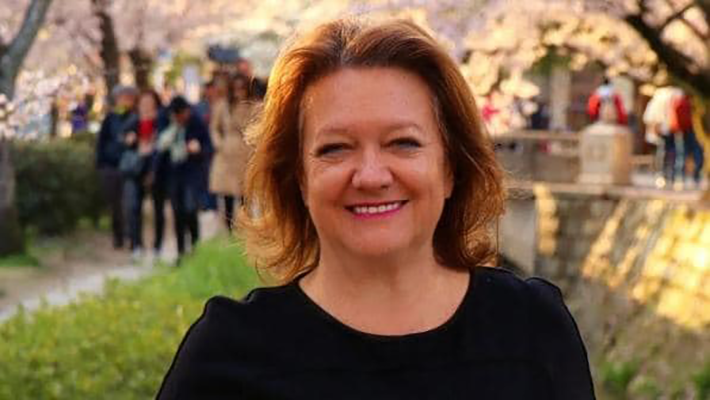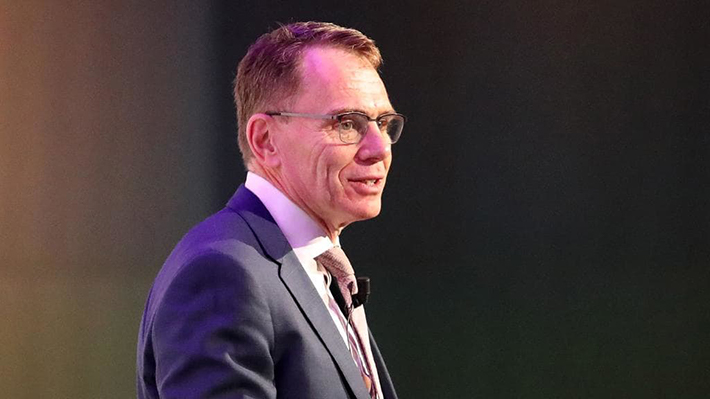Terry McCrann, Herald Sun
23 February 2019
The big Australian, Australia’s own BHP, is well and truly back in town.
It is now once again easily Australia’s biggest and most valuable company. The total value of all its shares listed in both London and locally now adds to more than $190 billion.
That’s about one-and-a-half times the value of the second biggest, and which for a while had supplanted BHP in the number one slot, the Commonwealth Bank.
BHP and its shares going up in value passed the CBA and its shares heading in the opposite direction — on the one hand because old style resources and especially iron ore are sexy again; and on the other because banks and what they do and how they have been doing it, are not.
The sheen came off the bank stocks mostly because of the end of the property boom. Then along came the royal commission. By all means hold “the guilty” accountable, but as I’ve argued before and will again, be careful what you wish for.
So it’s not only BHP. The shares in Rio Tinto, which focuses almost entirely on iron ore in the Pilbara, are reaching prices not seen since before the GFC, when BHP tried to take it over and Rio went to the Chinese to “save it”.
Rio is actually worth more than the CBA — $143 billion to $130 billion — but most of the Rio shares are listed in London and owned by foreign investors.
If we add in Andrew “Twiggy” Forrest’s Fortescue, the three big Pilbara iron ore producers add to a total worth of more than $350 billion. That’s almost as much as the big four banks, which add to around $370 billion.

Gina Rinehart is easily and unquestionably the biggest individual taxpayer Australia has ever had and by a legendary country mile.
But if also added in the value of the privately held Gina Rinehart resources group, the big four in mining would now be worth more than the big bank four.
We don’t have a market value for the Rinehart group but we do get to see how it pays hundreds of millions of dollars in tax every year.
Indeed, Rinehart is easily and unquestionably the biggest individual taxpayer Australia has ever had and by a legendary country mile.
Paying tax and paying tax in Australia is the one big thing that the big eight — the four banks and the four resources group — share.
They all pay mostly close to the statutory 30c in the dollar; any disputes with the Tax Office might sound like big dollar numbers but are all marginal in their tax bills.
That makes even more bizarre the way “we” seem determined to seriously if not indeed terminally harm their ability to generate profits to stay in business — and pay billions of dollars a year each in tax!
The banks are being assailed for making too much money, over and above any issues with ripping off customers. There seems a determination to significantly and permanently hobble them.
The resources groups are being assailed even more fundamentally as evil; that even though there are people overseas desperate to buy what they dig out of, or pump out of, the ground, to basically just survive, we should stop them supplying those needs.
If that ain’t a form of arrogant economic colonialism I don’t know what would be: telling the Chinese, the Indians, the Japanese and whomever that we know what’s good for them. And crippling our tax base to boot.

BHP chief executive Andrew Mackenzie. Picture: Colin Murty
BHP is not just the big — indeed, the biggest — Australian again in dollar value terms, it’s also come back to an almost all-Aussie future in actual operating terms.
The big change was of course to sell out of the US shale oil and gas business. A subsidiary but very significant change was to “quit” the Brazilian iron ore business.
BHP’s single biggest business is its Pilbara iron ore, now generating about 35c in every dollar of group revenue. Coal, which is almost entirely in Australia, generates another 24c of revenue.
Add in local oil and gas and Olympic Dam copper and over 70c of every dollar of group revenue is generated from local output. To repeat, that pours billions into our tax coffers, as well as money into the local economy.
Now BHP didn’t “choose” to exit Brazilian iron ore; it stopped because of its Samarco dam disaster. But that and the even bigger tragedy its Samarco partner Vale has had in its own operations shows the huge advantage of digging ore out of the remote Pilbara.
It’s got huge economic and environmental comparative advantages. The same goes for our coal.
Whatever you think of climate change — the “greatest moral challenge of our time”, or, correctly, an utter fraud — it’s much, much better for the world (and, what should be even more obvious, for us) to be digging it up here than almost anywhere else.















